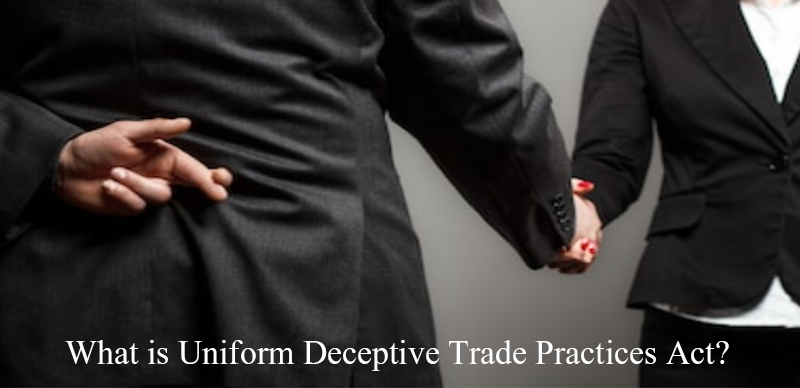
The Uniform Deceptive Trade Practices Act was first published in 1964 and revised in 1966. Its purpose was to unify the law of unfair competition, to which federal common law has been historically applied. This was generally non-uniform and underdeveloped in state legislatures.
The Act protects consumers from misleading business practices such as false advertising, trademark infringement, misrepresentation, and false disparagement.
Deceptive trade practices harm honest merchants as well as consumers. It also impairs rational allocation of economic resources. Recently, state and federal legislators pushed hard to limit economic deception. The most recent act the legislator enacted is the Federal Fair Packaging and Labeling Act.
Banning deception is a must for states and Federal Law. It is a slow process for federal legislation to protect the consumer. In some states, it is easier to enact consumer protection legislation. This is the case when such laws have the support of local businessmen unable to compete with deceptive practices.
Some years ago, the National Conference of Commissioners on Uniform State Laws recommended the enactment of the Uniform Deceptive Trade Practices Act to supplement existing state legislation. The act has already been passed in Delaware, Illinois, Maine and Nebraska.
The deceptive trade practices prohibited by the Uniform Act relate to conduct involving either:
- Unfair or fraudulent business practice or
- False or misleading advertising.
The primary remedy for violation of the Uniform Deceptive Trade Practices Act is an injunction
Section 3(b) provides statutory authority for the award of attorneys’ fees to the litigant in certain instances. However, the express conditions on judicial discretion to award attorneys’ fees show that the award applies only to exceptional circumstances. The statute allows the award of reasonable attorneys’ fees to the defendant if the plaintiff has brought an action that he knew to be groundless or to the plaintiff if the defendant has engaged in a trade practice that he knew to be deceptive. However, even in these situations, the award is not to be automatic.
The statute directs the judge to exercise discretion and weigh the nuances of the record in passing each application for attorneys’ fees. However, courts ought to be willing to award attorneys’ fees wherever the plaintiffs are consumers who have prevailed over merchants who have willfully deceived them. Consumers are unlikely to take on the financial burdens of a suit that only results in an injunction.
Section 3(a) authorizes the injunctive remedy for the commission of deceptive trade practice. It also outlines the test for standing underneath the Uniform Deceptive Trade Practices Act. Sandwiched among these dispositive provisions is the statement that the availability of relief under the Uniform Deceptive Trade Practices Act does not necessarily depend on the plaintiff’s establishing an “intent to deceive” on the part of the defendant.
This is often a substantive contribution to the definition of an actionable deceptive trade practice which would have been logically placed in Section 2. The location of the provision in 3(a) beyond question derives from 3’s limitation of remedies under the Act principally to a prospective injunction.
If you need more information about this Act or are facing some legal challenges, contact an experienced Attorney soon.

